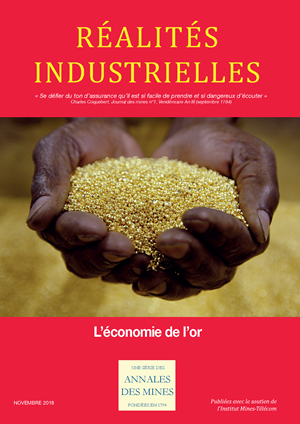|
 Novembre 2018 - L'économie de l'or Novembre 2018 - L'économie de l'or
The Retreat from Systemic Risk Regulation: What Explains It? (and Why It Was Predictable?)
John C. Coffee, Jr.,
Adolf A. Berle Professor of Law at Columbia University Law School and Director of its Center on Corporate Governance
Financial crises usually trigger a predictable cycle: first, a populist outburst that produces dramatic legislative and regulatory changes and, then, a slower counter-reaction as the financial industry gradually subjects the new reforms to a death by a thousand cuts, often with the result that little remains. This cycle ‒ here called the “Regulatory Sine Curve” ‒ can be traced back to the South Sea Bubble in 1720. In the aftermath of 2008, this cycle seems to be again in progress in the United States, as many of the Dodd-Frank Act’s reforms have either gone unimplemented or have been partially repealed. But the same cycle does not appear to be occurring in Europe. This brief essay analyzes these differing responses and seeks to explain why Europe seems better insulated against counter-reaction.
 Télécharger gratuitement l'article Télécharger gratuitement l'article
 Retour au sommaire Retour au sommaire
 November 2018 - The economics of gold November 2018 - The economics of gold
The Retreat from Systemic Risk Regulation: What Explains It? (and Why It Was Predictable?)
John C. Coffee, Jr.,
Adolf A. Berle Professor of Law at Columbia University Law School and Director of its Center on Corporate Governance
Financial crises usually trigger a predictable cycle: first, a populist outburst that produces dramatic legislative and regulatory changes and, then, a slower counter-reaction as the financial industry gradually subjects the new reforms to a death by a thousand cuts, often with the result that little remains. This cycle ‒ here called the “Regulatory Sine Curve” ‒ can be traced back to the South Sea Bubble in 1720. In the aftermath of 2008, this cycle seems to be again in progress in the United States, as many of the Dodd-Frank Act’s reforms have either gone unimplemented or have been partially repealed. But the same cycle does not appear to be occurring in Europe. This brief essay analyzes these differing responses and seeks to explain why Europe seems better insulated against counter-reaction.
 Download full article Download full article
 Retour au sommaire Retour au sommaire
|




